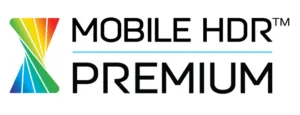The UltraHD Alliance had hoped to release its mobile specification for the Mobile HDR Premium logo at the CES show (UHD Alliance Focusing on Mobile HDR) but couldn’t get all the sign-offs completed, so it was released during MWC. The details are in the table.
|
Device |
Resolution |
Dynamic Range |
Color Space |
Bit Depth |
|
Smartphones (3″ – to 7″ screens) |
60 pixels/degree |
0.0005-540cd/m² |
90% of P3 Color gamut |
10 |
|
Tablets (7″ – to 12.9″ screens) |
60 pixels/degree |
0.0005-540 cd/m² |
90% of P3 Color gamut |
10 |
|
Laptops (9.5″- to 18″ screens) |
60 pixels/degree |
0.0005-540 cd/m² or |
90% of P3 Color gamut |
10 |
Products are expected to be licensed from 1st April, 2017.
Analyst Comment
The specification has clearly been set to make it difficult for LCDs to meet the requirements for smartphones and tablets and it loos as though they will just be OLEDs, at least for now. The use of the pixels/degree measurement is slightly strange. The joy of this metric is that it does allow the comparison of different devices at a range of resolutions and viewing distances. However, whereas TVs are viewed from a range of distances, mobile devices are used at a more limited range. It seems to us that the specification may allow makers to offer different resolutions and by varying the recommended viewing distance offer more or less pixels per degree. 60 pixels per degree is the same as 30 cycles per degree so is the equivalent of 20/20 vision. We didn’t manage to catch up with the UHD Alliance at the event, but will follow up on this topic. (BR)

